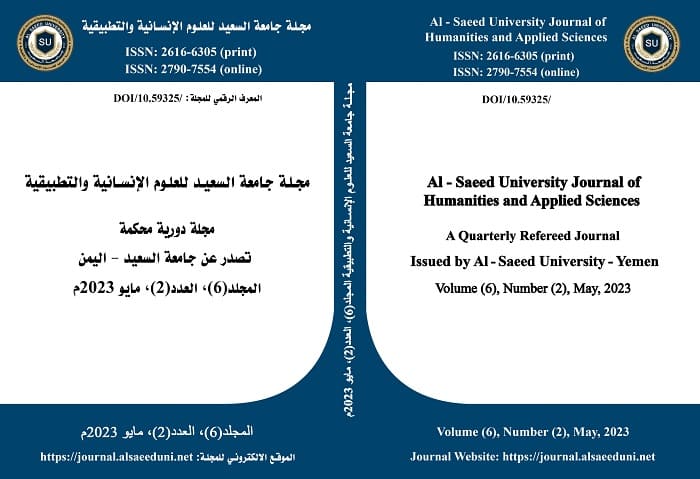The Impact of Integration between Reciprocal Teaching and Scientific Stations Strategies in Teaching Science on Developing Some Life Skills among Eighth Grade Female Students in Dhamar City
DOI:
https://doi.org/10.59325/sjhas.v6i2.153Keywords:
Integration Approach, Reciprocal Teaching, Scientific Stations, Life Skills.Abstract
The aim of the research is to identify the impact of integration between reciprocal teaching and scientific stations strategies in teaching science on developing some life skills among Eighth-grade female students in Dhamar City. To achieve the goal of the research, the descriptive analytical method was used, and the experimental method based on the quasi-experimental design of the two groups, with pre and post measurements. The research tools consisted of a list of content analyses of the seventh unit (nutrition in living organisms), and the eighth unit (the relationship of what you eat to the health of your body), in the eighth-grade science book, a list of life skills that need to be developed and a life skills test (nutrition - health- prevention- environment). After confirming the validity and reliability of the tools used, and applying them to the research sample, the research reached a number of results, most notably that there are statistically significant differences between the mean scores of the students of the experimental and control groups in the life skills test (attitude test) in favor of the experimental group due to the integrative approach.
Downloads
Published
How to Cite
Issue
Section
License
copyright is retained by the authors. Articles are licensed under an open access Creative Commons CC BY 4.0 license, meaning that anyone may download and read the paper for free. In addition, the article may be reused and quoted provided that the original published version is cited. These conditions allow for maximum use and exposure of the work.



